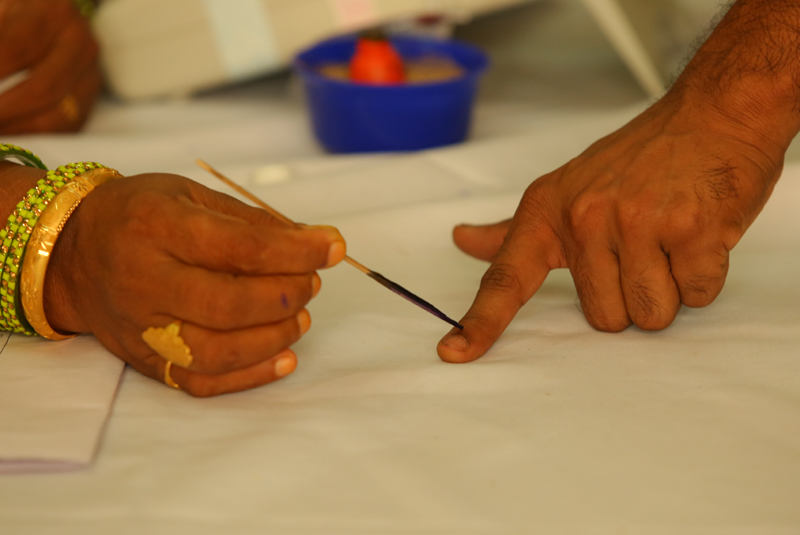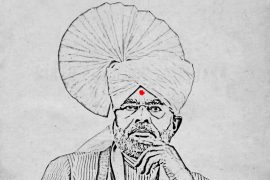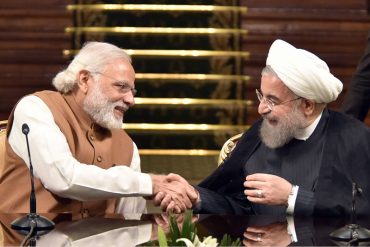As India, with 968 million voters, gears up for a seven-phase voting process starting on 19 April 2024, let us look at the requirements for ensuring free and fair elections, considering that it opted for universal adult franchise in 1950 to the surprise of many observers. Further, the separation of powers, expounded by the eighteenth-century French philosopher Montesquieu, is part of the basic structure of India’s Constitution.
Observers in India and the rest of the world note the ruling party’s overweening confidence, as expressed by Prime Minister Modi, who has been in office since 2014. He has repeatedly made it clear that he is aiming for 370 seats for his party and 400 seats for the NDA (National Democratic Alliance) that is in office.
The Lok Sabha (People’s House) has 543 elected members. With 370 seats, the BJP will have 68 per cent, more than the two-thirds majority required to change the Constitution. It is also pertinent to note that the ruling party does not accept that there is a basic structure of the Constitution that the Parliament cannot alter.
Notably, Modi is devoting more time to campaigning in the Southern states. He seems confident that after the meticulously choreographed inauguration of the Ram Temple at Ayodhya, the ‘Hindi belt’ in the North is already with him.
Despite Modi’s communally charged campaigning, the signals from the South are mixed. Huge numbers attend Modi’s meetings. However, he speaks in Hindi, seldom with interpretation into the state language. So, we do not know how many present can understand what he is saying.
There’s another characteristic of Modi’s minutely choreographed campaigns: as his motorcade moves, people standing on either side of the road shower flower petals on him as if he were a monarch greeted by his subjects. Modi’s party has money to spend to create such dramatic symbolism. It has an army of volunteers and can afford to rent tens of thousands of people to attend their rallies.
Despite having enormous money power, Modi seems to think his target of 400 can be attained only if the opposition is weakened or crushed by using (read abusing) the government machinery.
Case in point: Arrest of Arvind Kejriwal, the Chief Minister of Delhi, by the Enforcement Directorate (ED) days after the election commission announced the commencement of elections.
The ED, which anticipated protests by the Aam Admi Party (AAP), was accompanied by a large team of Delhi Police. Despite protests, the police took 4 hours to clear the roads before Kejriwal was taken to the ED’s office. Moreover, within hours, several AAP leaders were detained, and the AAP office was sealed off.
The ED alleges Kejriwal took bribes to change Delhi’s liquor licensing policy. However, we need to ask questions about the timing of the arrest. Conveniently, Kejriwal’s arrest comes weeks before the general elections. Could it be that the BJP hopes to gain from silencing Kejriwal, one of the stars of the opposition?
The pattern is similar to the arrest of the Deputy Chief Minister of Delhi–AAP leader Manish Sisodia– who was taken into custody in February 2023. A year later, the ED had yet to frame formal charges against him; moreover, his bail application was repeatedly rejected.
If one looks closely, the ED’s arrests are based on ‘confessions’ by ‘approvers.’ For example, Sarath Chandra Reddy, Director of Aurobindo Pharma, paid 30 crores to the BJP through electoral bonds just after being arrested. Post arrest, he turned approver. Can a solid case be built upon statements by ‘approvers’? Did he turn ‘approver’ under duress? It follows that the BJP has gained at least Rs.30 crores by initiating proceedings against the Aam Aadmi Party government in Delhi. Perhaps it has gained even more as corporates who fear adverse attention from ED might have taken insurance by buying electoral bonds.
President Biden, the self-styled chief promoter of democracy, has decided that silence is golden. Germany’s Foreign Office spokesperson expressed the hope that due process would prevail, adding that ‘the presumption of innocence is a central element of the rule of law and must apply to him.’ The Indian Ministry of External Affairs summoned Germany’s Deputy Chief of Mission George Enzweiler, who was told that such ‘biased assumptions’ are most unwarranted. Incidentally, the Indian media reported about the German spokesperson’s remarks only after the Ministry of External Affairs reacted.
In an op-ed, Pratap Bhanu Mehta, a scholar on politics and government, argues that ‘whenever a ruling party systematically targets the Opposition, it is also signalling the fact that it will not contemplate the smooth transition of power.’
Let’s consider another example. The leading opposition party, Congress, is facing a cash crunch because income tax authorities have frozen its bank accounts just before the elections. The party is finding it difficult to carry on regular campaigning. If opposition leaders are arrested, intimidated, and their finances crippled, will there be a level playing field?
Also, in this context, it would be pertinent to note how an Election Commissioner resigned, and two new commissioners were appointed based on a law that permits the Prime Minister to choose the Election Commissioner. The recently enacted law has constituted a panel of three members: the Prime Minister, a minister nominated by him, and the leader of the opposition. The minister will side with the Prime Minister, and the leader of the opposition will have no say. In fact, the leader of the opposition got the list of names of eligible officers only ten minutes before the meeting started. Obviously, the ruling party does not agree with Montesquieu and has gained its purpose without formally changing the Constitution.
Let’s consider another pertinent example–that of the Electoral Bonds.
The electoral bonds are an example of abuse of democracy, explicitly aimed to undermine it. The BJP introduced this scheme in 2018 and got 93 per cent of the money before the 2019 general election.
Recently, the Supreme Court declared the electoral bond system ‘unconstitutional.’ We shall not question why it took the Court so long to come out with its verdict. A study in the murky art of opaque political funding revealed that the electoral bond scheme permitted corporate bodies or individuals to ‘contribute’ to political parties without letting the public–or even shareholders–know who donated to which party, why, and for what reason. The Election Commission of India and the Reserve Bank of India initially opposed the scheme but caved in later.
The Supreme Court ordered the State Bank of India, the only bank empowered to issue bonds, to transmit full information to the Election Commission. Furthermore, it ordered the Election Commission of India to publish all the data on its website.
The order was given on 15 February 2024. However, the State Bank of India, which was to transmit details to the Election Commission, moved at a snail’s pace and complied with the order only by 21 March after the apex Court reiterated its order. The Court had ordered the Bank to do it by 6 March.
The Bank is answerable to the Finance Ministry and Reserve Bank. Did it take orders for delaying compliance? A discerning observer needs no further explanation.
Many opposition leaders say Modi will return to power by misusing state agencies, spreading misinformation, and using subtle electoral manipulation. Questions have also been raised as to whether the Electronic Voting Machines can be tampered with. The Election Commission has not yet addressed this matter to the satisfaction of political parties and alert citizens.
The opposition has been trying, though not effectively, to draw attention to Modi’s broken promises. For example, Modi pledged to double the farmer’s income and to put Rs. (15 lakhs) into every Indian’s bank account by bringing back black money kept outside India. Moreover, he promised to create millions of jobs.
Contrary to his claims, unemployment among the 20 to 24 is at a staggering 44.9 per cent and 14.33 per cent for the age group of 25 to 29, according to the Centre for Monitoring the Indian Economy.
Democracy in India is under attack. But let us hope that democracy in India will not be undermined. Let us hope that instead of becoming a diminished democracy, India will become a resilient, self-correcting democracy. Above all, democracy requires an intelligent and ever-alert electorate.
In this context, permit me, dear reader, to recall an excerpt from Dr Ambedkar’s last address to the Constituent Assembly in November 1948.
The second thing we must do is to observe the caution which John Stuart Mill has given to all who are interested in the maintenance of democracy, namely, not” to lay their liberties at the feet of even a great man, or to trust him with powers which enable him to subvert their institutions.” There is nothing wrong in being grateful to great men who have rendered life-long services to the country. But there are limits to gratefulness. As has been well said by the Irish Patriot Daniel O’Connel, ‘no man can be grateful at the cost of his honour, no woman can be grateful at the cost of her chastity and no nation can be grateful at the-cost of its liberty.’ This caution is far more necessary in the case of India than in the case of any other country, for in India, Bhakti or what may be called the path of devotion or hero-worship, plays a part in its politics unequalled in magnitude by the part it plays in the politics of any other country in the world. Bhakti in religion may be a road to the salvation of the soul. But in politics, Bhakti or hero-worship is a sure road to degradation and to eventual dictatorship.
-30-
Copyright©Madras Courier, All Rights Reserved. You may share using our article tools. Please don't cut articles from madrascourier.com and redistribute by email, post to the web, mobile phone or social media.Please send in your feed back and comments to [email protected]











